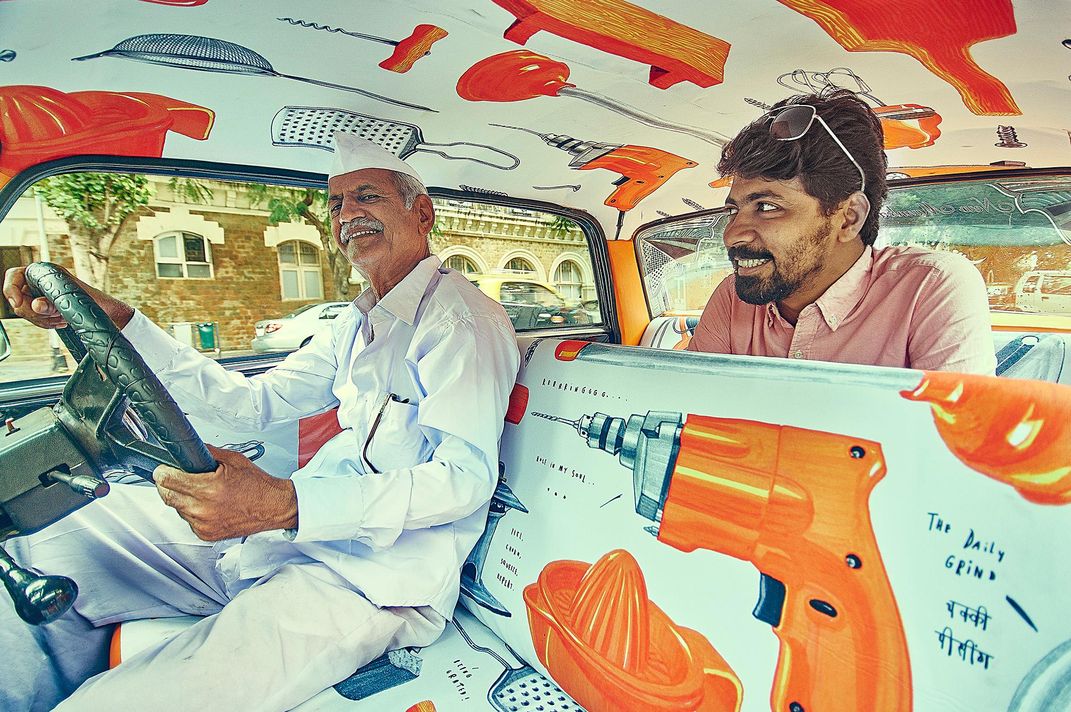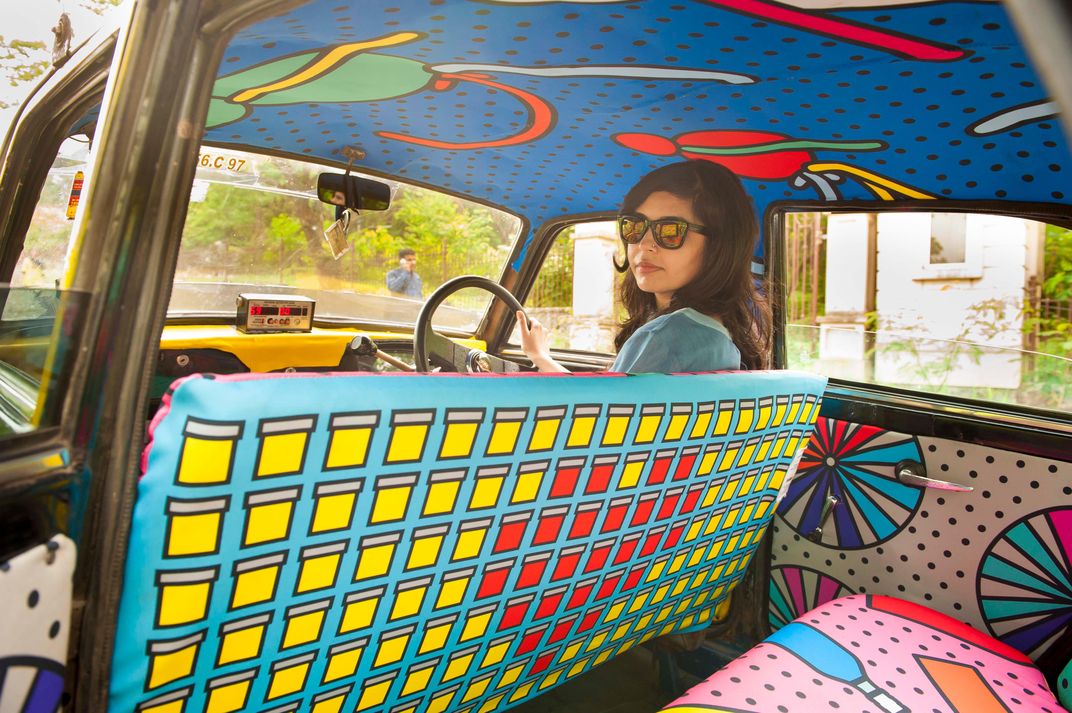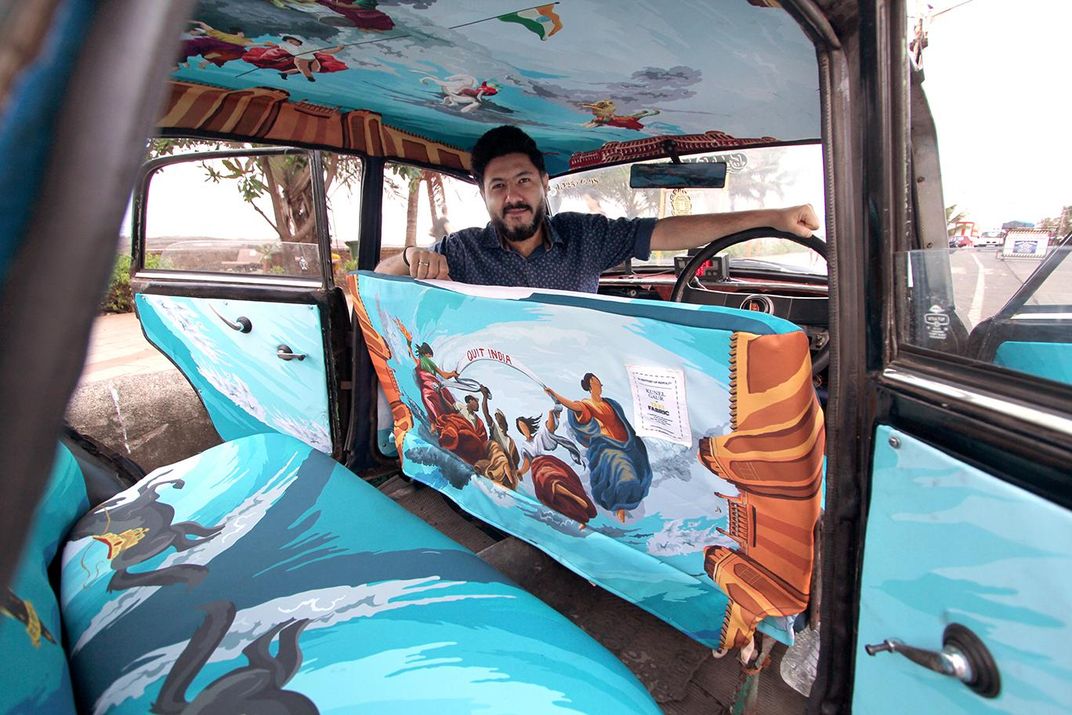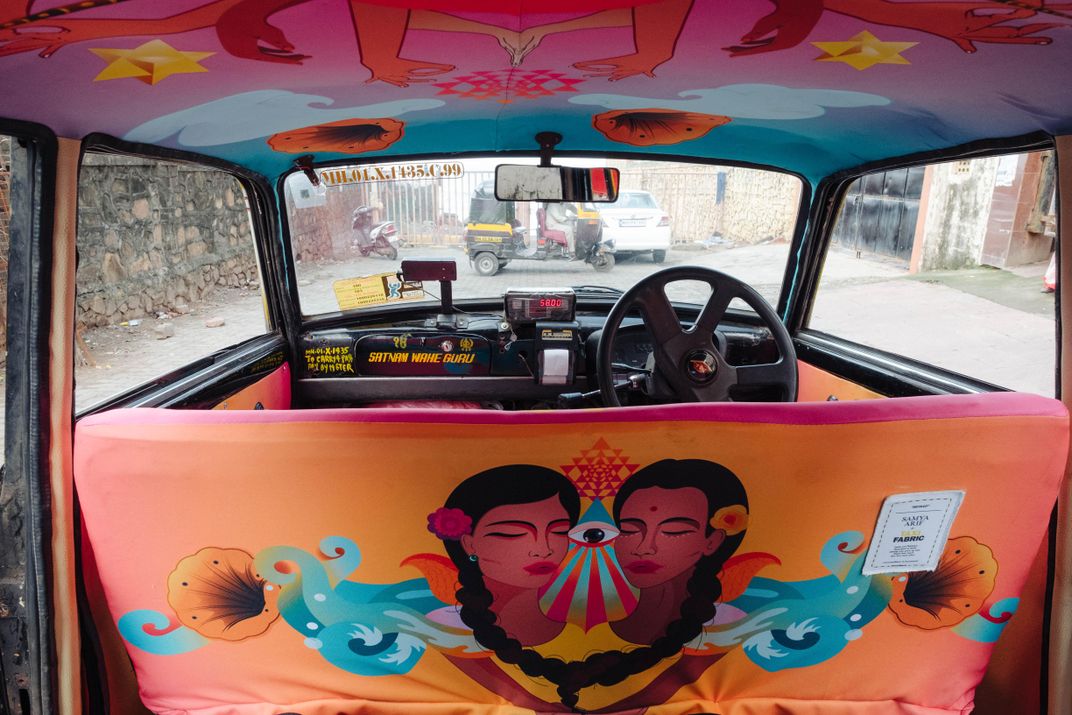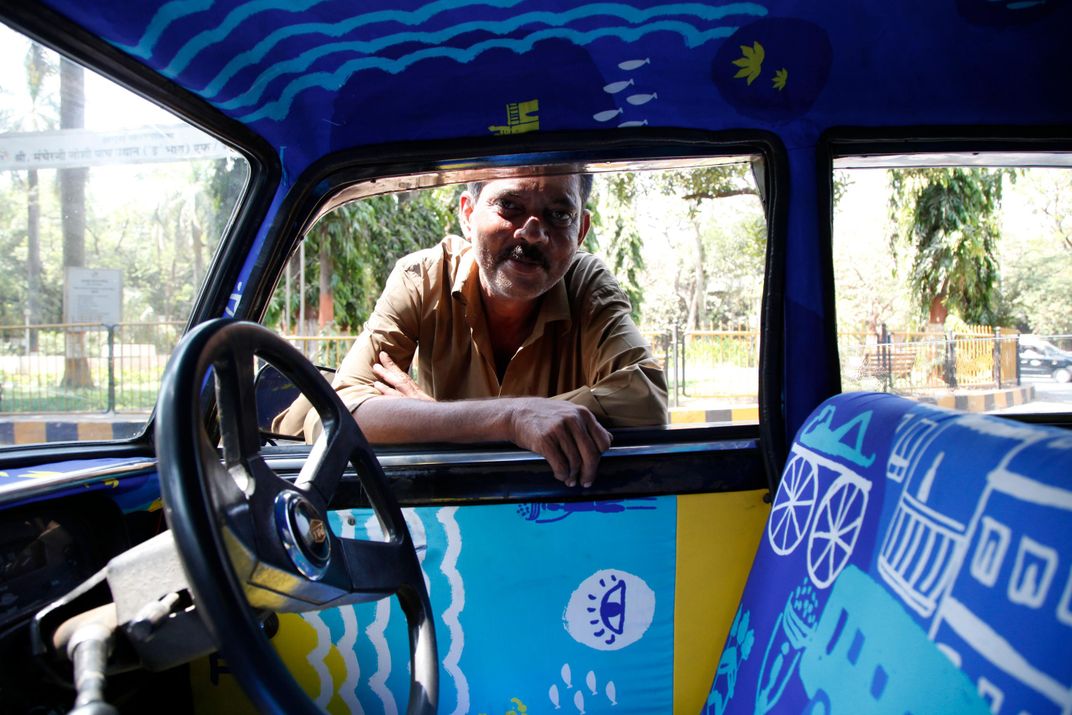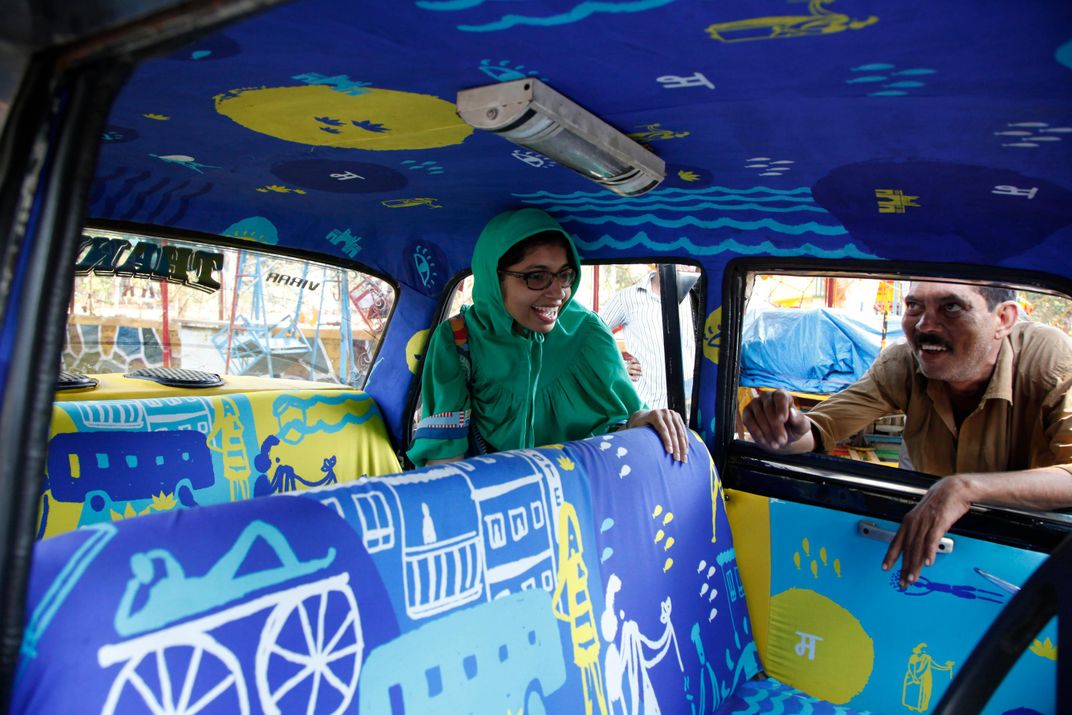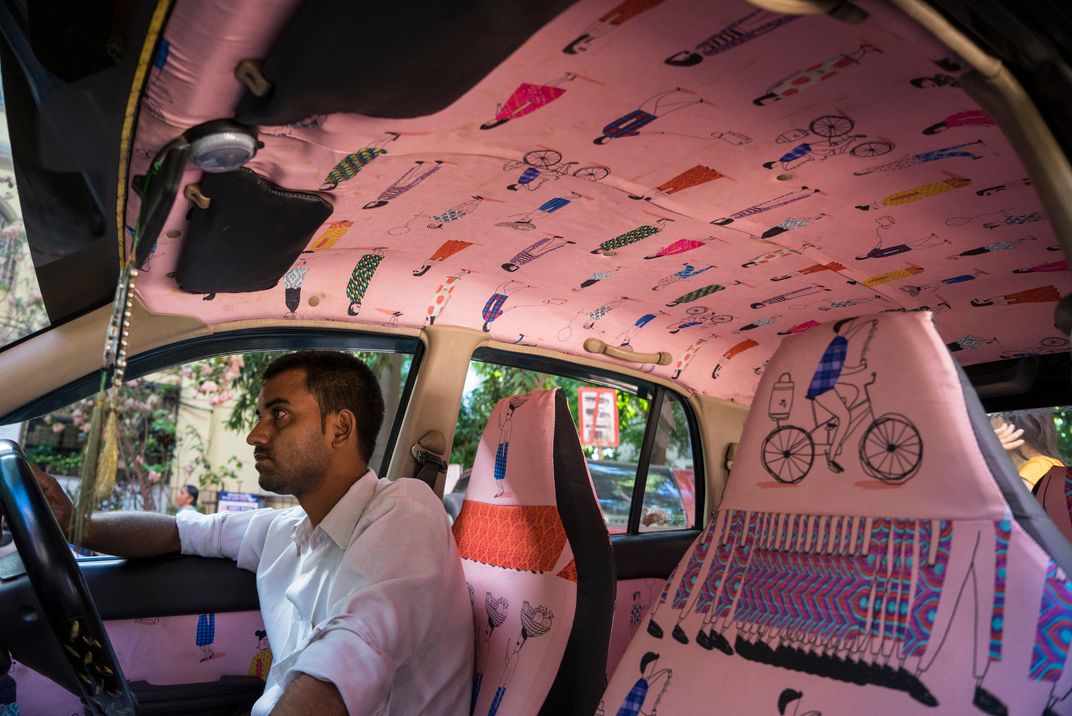This Company Transforms Indian Taxicabs Into Original Artworks
Intricately designed fabrics help taxi drivers stand out from the crowd
Most of the time, if you’re lucky, a taxi ride should be nothing to write home about. The seats will be clean, the ride quick and easy, and there’ll be nothing crowding the interior space, aside from those unavoidable electronic screens blaring ads at you. But a new Mumbai-based company is helping taxi drivers in India think a little differently about their decor, transforming interiors of cabs into brightly colored, original artworks created by local designers.
Mumbai’s taxis are an iconic part of its culture: the yellow-and-black cabs are one of the city’s most popular modes of transportation, and drivers often personalize their interiors to try and stand out from the crowd. But while the cabs may be dressed up to the nines, so to speak, drivers often neglect the fabric upholstery that covers their seats and ceilings, Eva Recinos writes for the Creators Project. Now, a company called Taxi Fabrics is trying to change that.
“The designs that cover the taxi seats are often dull and forgettable,” Taxi Fabric’s Nathalie Gordon tells Recinos. “And with the design talent Mumbai has to offer, this shouldn’t be the case.”
To spruce up the taxis, Taxi Fabrics creates fabric upholstery from original designs made by local artists and plasters them all over the vehicles’ insides. The result is a vividly colored interior that makes the cab one of a kind and also nets many drivers more tips from happy riders, Christopher Jobson writes for Colossal.
In addition to helping out Mumbai’s cab drivers, Taxi Fabrics aims to give local artists greater exposure by giving them a canvas that can be seen by hundreds of people a day. In a way, the cabs are like business cards for the artists, as each fabric cover comes with a label identifying the artist and how to contact them sewn into a label on the back seat, Recinos writes.
These days, the project is not only helping artists connect with people in their local community, but it is also helping them reach a more global audience. One fabric pattern created by Pakistani artist Samya Arif was featured in the music video for Coldplay’s “Hymn for the Weekend.” The design, called “Monad,” captures the fraught relationship between India and Pakistan, by depicting the nations as twins seperated at birth who forgot their deep love for one another, Arif writes on Taxi Fabric’s website.
So far, the project has decked out 26 taxis throughout Mumbai, and the creators hope to make more soon.
“A project such as Taxi Fabric allowed me as a Pakistani to work with a bunch of brilliant and talented people from India, which otherwise would've hardly been possible,” Arif writes. “Design can help people understand and communicate with each other better, while feelings and thoughts can be conveyed in an aesthetically pleasing manner.”
